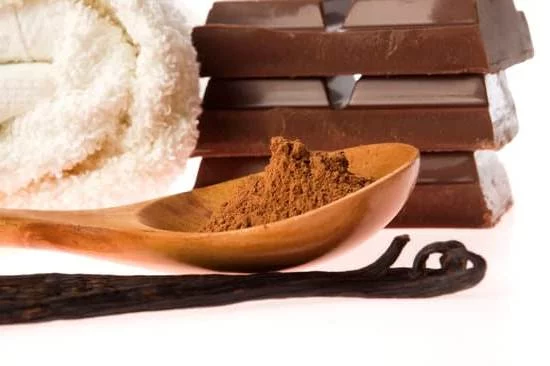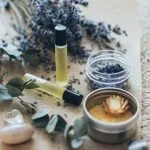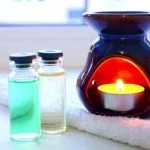Are you looking for ways to enhance your CPAP therapy? Discover how to use aromatherapy with CPAP to improve your sleep quality and overall experience. Aromatherapy has been used for centuries to promote relaxation, relieve stress, and improve sleep, making it a natural fit for those using CPAP machines. In this article, we will explore the benefits and purpose of combining aromatherapy with CPAP therapy, as well as provide practical tips for incorporating essential oils into your nightly routine.
Aromatherapy involves the use of natural plant extracts, such as essential oils, to promote physical and emotional well-being. When used in conjunction with CPAP therapy, aromatherapy can alleviate feelings of anxiety or discomfort associated with wearing a mask and create a more soothing environment for sleep.
Understanding the different types of aromatherapy oils and their effects is crucial in finding the right scents to complement your CPAP therapy. With the right knowledge and application, aromatherapy can be a powerful tool in improving sleep quality for individuals using CPAP machines.
In this section of the article, we will discuss how to incorporate aromatherapy into CPAP therapy effectively. From choosing the right essential oils that promote relaxation and calmness to utilizing aromatherapy diffusers that are safe to use alongside a CPAP machine – we will provide practical guidance on how to seamlessly integrate aromatherapy into your nightly routine.
Whether you are new to both CPAP therapy and aromatherapy or looking for ways to elevate your existing treatment, this comprehensive guide will equip you with the necessary information to make the most out of using essential oils with your CPAP machine.
Understanding Aromatherapy Oils
Aromatherapy oils are a popular complementary therapy that has been shown to improve sleep quality and overall well-being. When used in conjunction with CPAP therapy, they can enhance the benefits of continuous positive airway pressure (CPAP) treatment for sleep apnea. Aromatherapy works by stimulating the olfactory system and promoting relaxation, which can be especially beneficial for individuals with sleep disorders such as sleep apnea.
When it comes to choosing the right scents for CPAP, it’s important to consider the individual’s preferences and any potential sensitivities or allergies. Lavender, chamomile, and eucalyptus are common essential oils used for their calming and respiratory benefits, making them ideal choices for CPAP users. Lavender is known for its ability to promote relaxation and improve sleep quality, while eucalyptus can help clear the airways and ease breathing, making it particularly beneficial for those using CPAP therapy.
To incorporate aromatherapy into CPAP therapy, consider using a diffuser specifically designed for use with essential oils. These devices disperse the scent of the oils into the air, allowing you to enjoy their therapeutic benefits throughout the night. It’s important to ensure that the diffuser is placed at a safe distance from your CPAP machine to prevent any interference with its function.
| Benefits of Aromatherapy With Cpap | Common Scents for Cpap |
|---|---|
| Promotes relaxation | Lavender |
| Improves sleep quality | Chamomile |
| Clears airways | Eucalyptus |
Following safety precautions and guidelines is crucial when using essential oils with CPAP therapy. Always dilute essential oils properly before use and avoid direct contact with your skin or mucous membranes. Additionally, it’s important to clean your CPAP equipment regularly to prevent any buildup of oil residue. By incorporating aromatherapy oils into your nightly routine with your CPAP therapy, you can create a relaxing bedtime environment that promotes restful sleep and enhances the overall effectiveness of your treatment.
Using Aromatherapy Diffusers
Aromatherapy diffusers are a great way to incorporate the benefits of essential oils into your CPAP therapy. These devices work by dispersing the aroma of the essential oil into the air, allowing you to breathe in the therapeutic benefits while you sleep. Here are some ways to use aromatherapy diffusers with your CPAP machine:
- Choose a suitable diffuser: There are various types of diffusers available, such as ultrasonic, nebulizing, heat, and evaporative diffusers. Choose one that is safe to use in close proximity to your CPAP machine and bed.
- Place the diffuser strategically: Position the aromatherapy diffuser near your bedside table or on a nightstand close to your CPAP machine. This allows the aroma to circulate throughout the room while you sleep.
- Select the right essential oils: Certain essential oils can complement the effects of CPAP therapy by promoting relaxation and enhancing sleep quality. Lavender, chamomile, eucalyptus, and peppermint are popular choices for promoting respiratory health and relaxation.
Using aromatherapy with CPAP can be an excellent way to enhance your overall sleep experience and promote relaxation. By incorporating these simple steps into your bedtime routine, you can create a more soothing environment for effective CPAP therapy. Remember to always follow safety precautions and guidelines when using essential oils with your CPAP machine to ensure a safe and effective experience.
Safety Precautions
It’s important to exercise caution when using aromatherapy diffusers with your CPAP machine. Here are some safety precautions and guidelines to keep in mind:
- Avoid placing the diffuser directly on or near your CPAP machine to prevent any potential damage from moisture or oil leakage.
- Use high-quality, pure essential oils that are safe for inhalation and do not contain any synthetic additives or contaminants.
- Start with a lower concentration of essential oil in the diffuser and adjust according to your personal preference and sensitivity.
By following these safety precautions, you can enjoy the benefits of aromatherapy with your CPAP therapy without compromising the functionality of your equipment or risking any adverse effects on your respiratory system.
Safety Precautions and Guidelines for Using Essential Oils With CPAP
Aromatherapy can be a wonderful addition to CPAP therapy, providing relaxation and enhancing the overall sleep experience. However, it’s important to use essential oils with caution, especially when using them in conjunction with a CPAP machine. Here are some safety precautions and guidelines for using essential oils with CPAP:
First and foremost, it’s crucial to make sure that the essential oils you plan to use are safe for inhalation and compatible with the materials of your CPAP equipment. Some oils can cause damage to the plastic or silicone parts of the machine, leading to potential health hazards.
When incorporating aromatherapy into your CPAP therapy, always dilute the essential oils properly. Undiluted oils can be too potent and may cause irritation or allergic reactions when inhaled. Most experts recommend diluting essential oils in a carrier oil before using them with a diffuser or applying them topically.
It’s also important to clean your CPAP equipment regularly if you are using aromatherapy with your machine. Residual oils from the diffuser can build up over time, leading to bacterial growth and affecting air quality. Make sure to follow the manufacturer’s instructions for cleaning your CPAP equipment after using aromatherapy.
Finally, always consult with your healthcare provider before integrating aromatherapy into your CPAP therapy, especially if you have any underlying health conditions or concerns about potential interactions with medications. They can provide personalized recommendations and ensure that aromatherapy is safe for you.
Lastly but not leastly do not forget about high-quality aromataherapic oil brands which produce natural essences without additives like artificial scents,labeled 100 percent pure therapeutic-grade on their packaging. This will ensure that you get maximum benefits from aroma therapy while being as kind as possible towards your cpap machine.
| Safety Precautions | Guidelines |
|---|---|
| Check compatibility of oils with CPAP materials | Dilute essential oils properly |
| Clean CPAP equipment regularly | Consult healthcare provider before use |
Tips for Enhancing Sleep Quality With Aromatherapy and CPAP
Aromatherapy has been known to provide numerous benefits for overall well-being, including enhancing the quality of sleep. When used in conjunction with CPAP therapy, aromatherapy can further improve sleep quality for individuals with sleep apnea. Here are some tips on how to use aromatherapy with CPAP to enhance sleep:
- Use a compatible aromatherapy diffuser: To incorporate aromatherapy into your CPAP therapy, it’s important to choose a diffuser that is safe to use in the same room as your CPAP machine. Look for diffusers that are specifically designed for use in bedrooms and are compatible with essential oils.
- Select the right essential oils: Certain scents have been proven to promote relaxation and improve sleep quality. Lavender, chamomile, and jasmine are popular choices for their calming properties. Additionally, eucalyptus and peppermint can help clear sinuses and promote easier breathing, which can be beneficial for individuals with sleep apnea.
- Timing is key: It’s important to start using aromatherapy well before bedtime to allow your body to relax and prepare for sleep. Consider incorporating essential oils into your evening routine, such as adding them to a warm bath or using a diffuser as you wind down for the night.
Incorporating aromatherapy into your CPAP therapy can create a more soothing environment and improve your overall sleep experience. By selecting the right essential oils, using a safe diffuser, and being mindful of timing, you can harness the power of aromatherapy to enhance the effectiveness of your CPAP therapy and promote better quality sleep.
As always when using any new treatment alongside CPAP therapy, it’s important to consult with your healthcare provider before incorporating aromatherapy into your routine. They can provide guidance on safety precautions and any potential interactions between certain essential oils and medications. With proper care and consideration, aromatherapy can be an excellent complement to CPAP therapy for improved sleep quality.
Creating a Relaxing Bedtime Routine With Aromatherapy and CPAP
When it comes to using aromatherapy with CPAP, creating a relaxing bedtime routine can greatly enhance the overall sleep experience. Incorporating aromatherapy into your nightly routine can help promote relaxation and reduce feelings of stress or anxiety, making it easier to fall asleep and stay asleep throughout the night. By combining aromatherapy with CPAP therapy, you can create a soothing and calming environment that promotes restful sleep.
Choosing the Right Aromatherapy Oils
The first step in creating a relaxing bedtime routine with aromatherapy and CPAP is choosing the right essential oils. Lavender, chamomile, and ylang-ylang are popular choices for promoting relaxation and improving sleep quality. These scents can help calm the mind, reduce stress, and prepare the body for sleep. It’s important to choose high-quality essential oils that are safe to use with CPAP therapy. Look for pure, therapeutic-grade oils that are free from additives or synthetic ingredients.
Incorporating Aromatherapy Into Your Routine
Once you have chosen the right essential oils, you can incorporate aromatherapy into your bedtime routine by using a diffuser. Add a few drops of your chosen essential oil to the water reservoir of the diffuser and turn it on before you go to bed.
The gentle mist will disperse the scent throughout your bedroom, creating a relaxing atmosphere that is conducive to sleep. You can also add a few drops of essential oil to a cotton ball or tissue and place it near your CPAP machine so that the scent is dispersed as you breathe.
Tips for Creating a Relaxing Bedtime Routine
In addition to using aromatherapy with CPAP therapy, there are other elements you can incorporate into your bedtime routine to promote relaxation and improve sleep quality. Consider practicing mindfulness or meditation before bed, enjoying a warm bath, or engaging in light stretching exercises.
Create a calming environment by dimming lights, turning off electronic devices, and playing soothing music or nature sounds. By establishing a relaxing bedtime routine that includes aromatherapy, you can optimize your sleep environment and enhance the effectiveness of your CPAP therapy.
Case Studies
Case Study 1: John’s Experience
John, a CPAP user for several years, was struggling with getting quality sleep despite using his CPAP machine. He found it difficult to relax and unwind before bedtime, which affected his overall sleep quality. After researching how to use aromatherapy with CPAP, he decided to try incorporating essential oils into his nightly routine.
John purchased a lavender essential oil, known for its calming properties, and used a diffuser to disperse the scent in his bedroom while using his CPAP machine. To his surprise, John noticed an immediate improvement in the quality of his sleep. The soothing aroma of lavender helped him relax and fall asleep more easily, resulting in a noticeable decrease in his daytime fatigue.
Case Study 2: Sarah’s Journey
Sarah, who struggled with insomnia and anxiety in addition to her sleep apnea, was looking for natural ways to improve her sleep while using a CPAP machine. She decided to explore the benefits of aromatherapy and how it could complement her CPAP therapy. After consulting with her healthcare provider, Sarah learned about the calming effects of chamomile essential oil.
She began using a few drops of chamomile oil on a cotton ball placed near her CPAP machine’s air intake filter. The gentle scent of chamomile helped Sarah feel more relaxed and at ease during her bedtime routine, ultimately leading to longer periods of uninterrupted sleep throughout the night.
Case Study 3: Michael’s Success Story
Michael had been experiencing nasal congestion and sinus issues while using his CPAP machine, making it challenging for him to breathe comfortably through the night. Determined to find relief from these symptoms, he discovered that eucalyptus essential oil could help clear congestion and promote easier breathing.
Michael experimented with adding a few drops of eucalyptus oil to the water reservoir of a humidifier attached to his CPAP machine. The invigorating aroma of eucalyptus not only helped alleviate his nasal congestion but also enhanced the overall effectiveness of his CPAP therapy by promoting clearer airways during sleep.
These real-life experiences demonstrate how individuals have successfully incorporated aromatherapy into their CPAP therapy routines, allowing them to experience improved sleep quality and better manage their sleep apnea symptoms.
Conclusion
In conclusion, incorporating aromatherapy into CPAP therapy can be a beneficial and enjoyable way to enhance the overall sleep experience. By understanding the benefits of aromatherapy and choosing the right scents for CPAP, individuals can create a relaxing bedtime routine that promotes better sleep quality. Utilizing aromatherapy diffusers is a simple and effective way to incorporate essential oils into CPAP therapy, and by following safety precautions and guidelines, users can ensure a safe and enjoyable experience.
Real-life case studies have shown how using aromatherapy with CPAP has improved sleep quality and overall well-being for individuals dealing with sleep apnea. From reducing nasal congestion to promoting relaxation, the power of aromatherapy should not be underestimated in its ability to complement CPAP therapy.
In summary, by learning how to use aromatherapy with CPAP, individuals can harness the power of essential oils to improve their sleep and make their CPAP therapy more effective. Whether it’s creating a calming environment for better rest or addressing specific issues such as dryness or congestion, aromatherapy offers a natural and holistic approach to enhancing the CPAP experience.
Frequently Asked Questions
Can You Put Liquid Vicks in a CPAP?
It is not recommended to put liquid Vicks in a CPAP machine. The oils in the Vicks can potentially damage the CPAP equipment and may even be harmful to breathe in.
What Is the Scented Air for CPAP?
Scented air for CPAP machines is typically achieved using special CPAP machine air fresheners or scented pads specifically designed for use with CPAP equipment. These are safe for use with the machine and can help make the air more pleasant.
Do Essential Oils Help Sleep Apnea?
While essential oils are often used for relaxation and sleep, there is limited scientific evidence to support their effectiveness in treating sleep apnea. Some people may find that certain essential oils help them relax and breathe more easily, but it’s important to consult a healthcare professional before using essential oils as a treatment for sleep apnea.

Are you looking for a natural way to improve your health and wellbeing?
If so, aromatherapy may be the answer for you.






